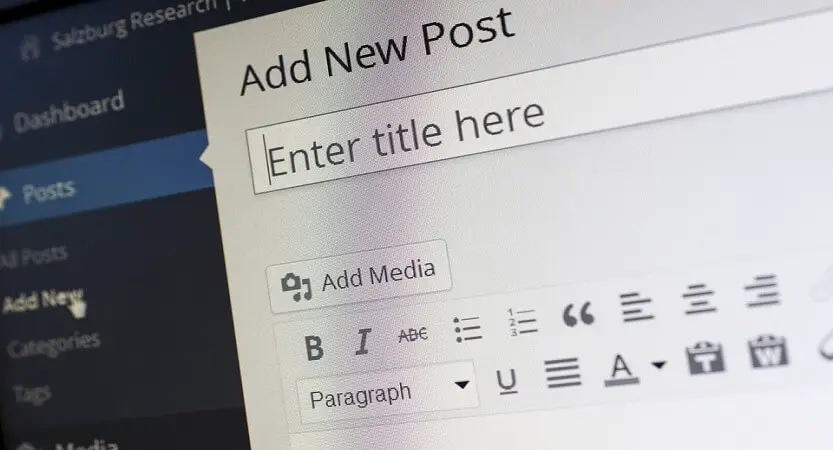
What is a Blog? Definition of Blog, Blogging, and Blogger
In the digital era like today, blogs have become one of the most popular media. Many people use blogs to share information, channel their writing hobby, or even generate income. However, many still wonder, what is a blog , what is blogging , and what is a blogger ? This article will discuss in depth the definition of a blog , history, types of blogs, structure, and benefits of blogging.
What is Blogging?
A blog is a website or online platform that contains content in the form of writing, images, or videos that are uploaded periodically by its owner. This content is usually informative, personal, or in accordance with a certain theme. What is meant by a blog is not only a place to write, but also a medium to communicate with the audience.
Meanwhile, what is blogging refers to the activity of creating, managing, and publishing content on a blog. Blogging includes creative processes such as writing articles, choosing designs, and optimizing content so that it can be found in search engines. What is a blogger? Blogger is a term for people who carry out blogging activities. They are creators who manage blogs, either individually or in groups.
History of Blogs and Blogging
The history of blogs began in the late 1990s. Initially, blogs were known as weblogs , which is short for “web log.” The term was first used by Jorn Barger in 1997 to describe an online journal that recorded personal experiences or specific reviews.
In 1999, the term “blog” began to be popularized by Peter Merholz who shortened “weblog” to “we blog.” Since then, blogging platforms such as Blogger, WordPress, and Tumblr have emerged. The ease of use of these platforms has made blogging increasingly popular and developed into a multifunctional media, from just a hobby to a business opportunity.
Types of Blogs That Exist Today
There are different types of blogs that evolve according to the needs of the users. Here are some types of blogs and their respective meanings:
1. Personal Blog
This blog is used to write experiences, opinions, or personal stories. Examples include online diaries or travelogues.
2. Niche Blogs
Niche blogs focus on a specific topic, such as health, technology, fashion, or food. They are great for attracting a specific audience.
3. Multimedia Blog
Blogs that are dominated by multimedia content such as videos, photos, or audio. Vlogs (video blogs) are one example of this type.
4. News Blog
This type of blog contains the latest information or news, both locally, nationally, and internationally. News blogs are often managed by journalists or media organizations.
5. Company or Business Blog
These blogs are used by companies to promote products, provide information to customers, or enhance brand image.
6. Affiliate Blog
A type of blog designed to make money through affiliate programs. Bloggers typically write product reviews and include affiliate links for a commission.
7. Reverse Blog
In reverse blogging, content is generated by users, not by the blog owner. The owner only acts as a moderator.
8. Professional Blog
This blog is professionally managed with the aim of building a career, gaining clients, or demonstrating expertise in a particular field.
Blog Structure
The structure of a blog has several important elements that make it well organized:
- Header : Contains the blog title, logo, and navigation menu.
- Body : The main place for blog content, such as articles, images, or videos.
- Sidebar : An additional area that usually contains widgets, such as archives, categories, or social media links.
- Footer : The bottom of a blog that contains additional information such as copyright, contact, or important links.
- Comment Section : An interactive area where readers can leave comments or feedback.
A clear structure helps readers navigate the blog easily and understand the content presented.
Blog Functions and Benefits
Blogs have a variety of useful functions, both for individuals and businesses. Here are some of the functions of blogs and their main benefits:
1. As a Space for Sharing Information
Blogs allow us to share knowledge, experiences, or views with a wide audience. The information conveyed can be in the form of tutorials, opinions, or tips.
2. To Make Money
Many bloggers use blogs to make money, either through advertising, affiliate programs, or selling digital products.
3. Means of channeling the hobby of writing
For those who have a hobby of writing, blogs are the perfect medium to channel creativity and produce written works that can be enjoyed by many people.
4. Building Personal Branding
Blogs help individuals build a professional image in the online world. With consistent content, we can demonstrate expertise and increase credibility.
5. Maximize Website SEO
Blogs can improve a website’s ranking in search engines. By using the right keywords, blogs help increase visibility and bring in more visitors.
6. Get New Customers
For businesses, blogs serve as a marketing tool to attract new customers. Relevant content can build trust and increase conversions.
Conclusion
What is a blog? A blog is an online medium that allows anyone to share information, express themselves, and build a community. Through blogging, we can write and share meaningful content, both for personal and professional purposes. What is a blogger? A blogger is a creator who creates and manages a blog for a specific purpose. By understanding the definition of a blog , its types, and its benefits, we can use blogs to achieve various goals.
References: hostinger.co.id , dewaweb.com , domainesia.com .
Author: Yazid Yusuf – Directorate of Information Technology Center


